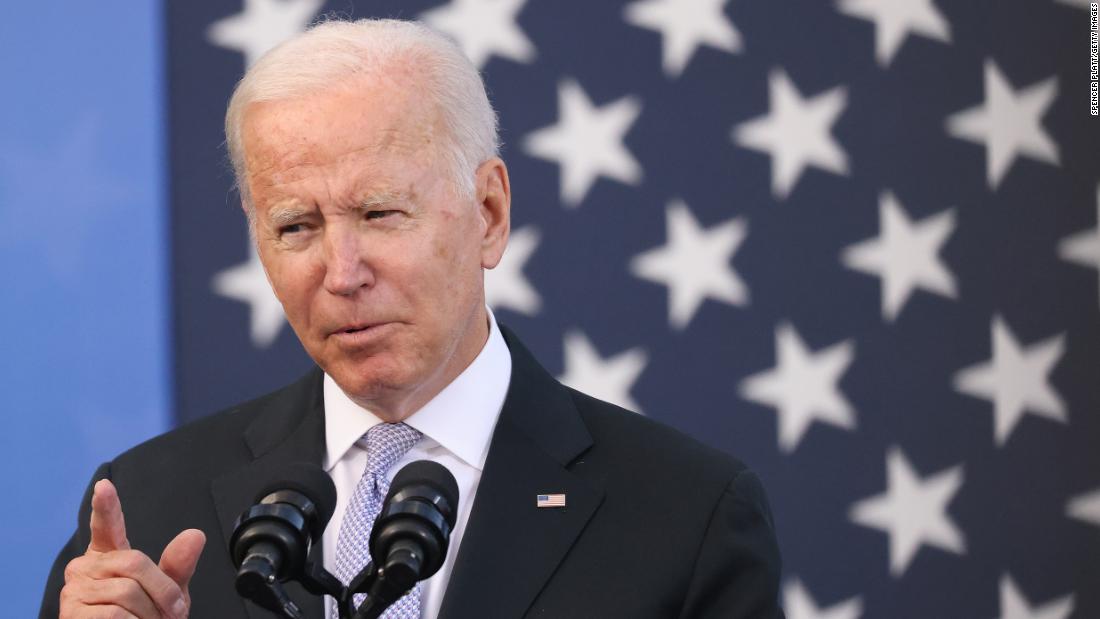The President’s double play of social spending and a bipartisan infrastructure program may finally come to fruition this week
If Democrats finally agree on the makeup of the bills, and Biden manages to include billions of dollars in funding to slow global warming, he will get a huge boost on a foreign trip beginning Thursday that includes the G20 summit in Rome and the United Nations climate summit in Scotland. A strong environmental component of the bill is crucial to Biden’s credibility as he seeks to put the US back at the front of the global campaign to save the planet — one of his top foreign policy goals — and would put pressure on other top polluting nations to follow suit.
“It is less than we had…projected to begin with, but it’s still bigger than anything we have ever done in terms of addressing the needs of America’s working families,” Pelosi told Tapper.
Another promise that could be kept
The $1 trillion infrastructure bill, meanwhile, would honor Biden’s inaugural call for national unity and for Republicans and Democrats to find areas to cooperate despite gaping ideological divides. One of the core principles of Biden’s presidency and his effort to tame the populist anger that led to the Trump presidency is to show that government can be an effective force for good in the lives of working Americans denied the benefits of several decades of economic expansion.
Passing any large bill in an era when the country is bitterly polarized and operates on the basis of typically small congressional majorities is highly unusual. Yet Biden could walk away with nearly $3 trillion in infrastructure and social spending bills on top of an earlier $1.9 trillion Covid-19 rescue bill. Such a list of achievements may go some way to tempering Democratic angst after a brutal summer in which the President’s stature took a pounding over the chaotic withdrawal from Afghanistan, a surge in coronavirus infections, rising inflation, peaking gas prices, a mismatched labor market and a supply chain crunch.
It would also allow him to argue to Americans that he and his party had made good on their campaign promises and leveraged a moment when they control power in Washington to make significant political change.
Until now, there has been vast mistrust between House progressives and moderates in the Senate, including Arizona Sen. Kyrsten Sinema, who is opposed to raising the corporate tax rate and the top marginal rate of income tax for individuals, CNN has reported. Such hikes were originally seen as critical to paying for the social spending plan. Pelosi told CNN Sunday that potential alternative financing for the bill could involve a billionaires’ tax and IRS tax enforcement.
The internal Democratic disconnect thwarted a previous attempt by the House to pass the infrastructure bill on the basis of a separate agreement by senators on the content of the spending plan. But there are signs that Biden’s intense role in the negotiations in recent days may have eased that impasse.
“My view is that the President’s word, saying, ‘I have the commitment of 50 senators, and those 50 senators are going to vote for this bill and here are the details, that that’s good enough,'” Rep. Ro Khanna, a progressive Democrat from California, said on “Fox News Sunday.” “I don’t think proceduralism will hold us back. If the President gives his word and has a clear commitment, that will be good enough.”
Passing huge bills comes with risks for Democrats
It also remains to be shown whether embarking on a massive spending program truly reflects the will of voters, who, after all, produced a 50-50 Senate in the last election — in which Democrats can call on Vice President Kamala Harris’ deciding vote — and gave the party an advantage of a only handful of seats in the House. Such slim margins hardly represent a massive mandate for change in normal times.
Republicans are already making such an argument the centerpiece of their campaigns for midterms in which they have high hopes of winning the House and the Senate and effectively preventing Biden from any other big legislative achievements for the remainder of his term ahead of the 2024 presidential election.
“Democrats are having an incredibly hard time getting where they’d like to be,” Missouri Sen. Roy Blunt said on NBC’s “Meet the Press” on Sunday. “They’ve decided that they’ve got a mandate when there’s clearly no mandate.”
It may also be months or even years, before the spending included in the bills really filters through to regular Americans and begins to change their lives in a manner that is sufficiently tangible to shape their political decisions. It took years, for example, for the Affordable Care Act, passed by ex-President Barack Obama when Biden was vice president, to become popular and to embed itself in American society. In the short-term, passing that measure, which was easily portrayed by Republicans as a liberal spending and power grab — just as Biden’s current plans are now cast — helped cost Democrats their edge in Congress.
But in the modern era, with voters generally in a disgruntled mood and with power changing often between Democrats and Republicans in Washington, it is becoming even more vital for each party to maximize their achievement in the fleeting years when they are in control. Biden could go a long way toward realizing that goal in the next week
![]()


